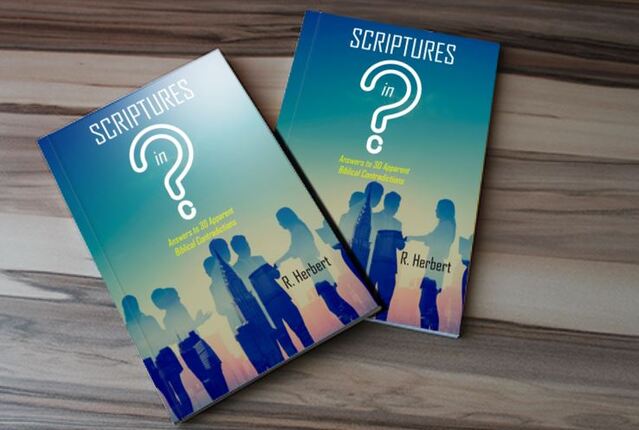When we think of the book of Job we usually think of the narrative stream of events: righteous Job; God giving Satan permission to afflict him; Job’s troubles; his discussions with his friends; God speaking to Job; and finally, Job’s restoration. We see this story-stream, but we don’t always focus on the questions in the stream. Yet when we look closely at the questions in Job, we can see the underlying lesson of the book much better because the questions in Job actually provide the structural “skeleton” of the story – they are the “bones” which support the body of the narrative, rather than the other way around.
Once the stage is set, the book of Job begins with questions: “Where have you come from?” (1:7), “Have you considered my servant Job?” (1:8), “Does Job fear God for nothing?” (1:9), ““Have you not put a hedge around him and his household and everything he has?” (1:10). These questions quickly propel us into the story proper, and it is here that Job begins to ask an ongoing string of questions that form the heart of the story. Notice just some of these questions:
- “Why did I not perish at birth, and die as I came from the womb?” (3:11)
- “Why is light given to those in misery, and life to the bitter of soul?” (3:20)
- “Why do you hide your face and consider me an enemy?” (13:24)
- “Why do the wicked live on, growing old and increasing in power?” (21:7)
When we put Job’s questions together in this way, we immediately see a clear pattern: Job asks “Why?” over and over again. In the course of the book Job asks this same question many times as he grapples with his situation. At the heart of Job’s many “Why?s” is the central issue of why God allows him to suffer undeservedly – a question explicitly stated in his words: “I will say to God, Do not condemn me; let me know why you contend against me” (Job 10:2 ESV).
Throughout the central part of the book, Job’s friends also ask questions – all of which are aimed at Job himself. But, one after another, Job – rightly - discounts the speeches of the three friends and returns to his unanswered questions of “Why?”
Finally, at the climax of the story, God himself steps into the scene with questions of his own – introduced with the words “Brace yourself like a man and I will question you and you shall answer me” (38:3, 40:7).
Throughout four full chapters God then pummels Job with some seventy questions of his own, (Job 38-41). When we look carefully at God’s questions, we see a pattern, also. God does not ask “Why?” Instead, God proceeds to ask Job “Where?” “When” “What?” “How?” “Which?” and “Who?” along with questions such as “Can you…?” “Have you?” “Did you?” and so on.
But God is not really asking Job for answers to all these questions – he does not give him the opportunity to try to answer them. They are rhetorical questions God knows Job cannot answer. But God’s questions make it clear that Job doesn’t know the answers to the when, where, what, how, and other aspects of God’s works. The clear point of God asking Job every type of question other than “Why?” is that of a rebuke to Job: why does he question why God does what he does and allows what he allows, when he clearly does not understand any of the aspects of God’s works regarding the inanimate and animate elements of creation. In other words, God asks Job: Why question the “why?” of my will when you cannot comprehend the “How” and any of the other aspects of what I choose to do? That is why, when God has finished questioning Job, the patriarch exclaims:
“You asked, ‘Who is this that obscures my plans without knowledge?’ Surely I spoke of things I did not understand, things too wonderful for me to know” (Job 42:3).
Job came to realize that if he is not qualified in any way to comprehend the basic aspects of God’s creation and sustaining of all there is, then he certainly was not qualified to pass judgment on how God directs the events of human lives or allows what he does allow.
This was Job’s epiphany, his moment of understanding at the conclusion of the book’s dialog when he says to God: “You said, ‘Listen now, and I will speak; I will question you, and you shall answer me.’ My ears had heard of you but now my eyes have seen you. Therefore I despise myself and repent in dust and ashes” (Job 42:4-6). Job realized that although he had not done wrong, he still had no reason to question God’s wisdom and judgment in allowing his suffering.
The questions found throughout the book of Job reveal the true nature of Job’s situation and God’s purposes. It is in the questions in Job that we find the answers to the underlying message of the book.



 RSS Feed
RSS Feed
